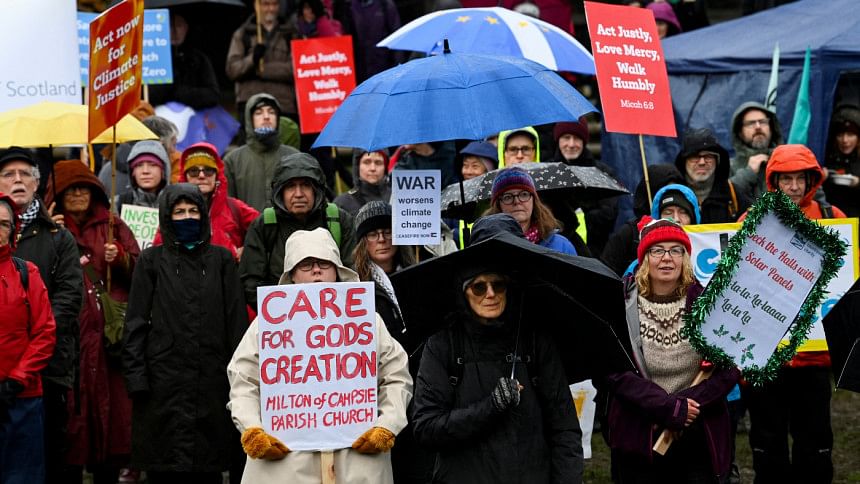Climate damage fund: Just $700m pledged by wealthy nations

Industrialised nations, who have historically been and continue to be the main drivers of anthropological climate change, pledged a mere $700 million to the Loss and Damage fund, less than 0.2 percent of the annual losses developing countries suffer due to global warming.
The initial pledges for the loss and damage fund fall woefully short of what is needed. While Germany, the United Arab Emirates, and the UK offered token contributions of $100 million, $100 million, and $75 million, respectively, the United States, a major climate polluter, pledged a mere $17.5 million, demonstrating a blatant disregard for its responsibility in causing climate-related harm.
Other pledges included $50 million from Denmark, $27 million from Ireland and the EU, less than $12 million from Canada, $25 million from Norway, and $1.5 million from Slovenia. Some $429 million was pledged by the end of the opening day at COP28.
As the first week of this year's conference drew to a close, combined pledges amounted to just$700m- a negligible0.2% of the estimated funding required, and betraying a lack of genuine commitment from wealthy nations to address the devastating consequences of climate change faced by vulnerable communities around the world.
The late Bangladeshi scientist Dr Saleemul Huq, who tragically passed away in Dhaka in the weeks before COP28, was one of the great champions of setting up such a fund, that was announced at COP27 in Sharm El Sheikh. The International Centre for Climate Change and Development, or ICCCAD, which Dr Huq served as its director, is currently leading an effort to have the Loss and Damage fund named after him.
Despite the initial announcement at COP27, the loss and damage fund only gained momentum in the weeks before COP28. Then in a historic move, the fund was agreed at the opening plenary of the first day of the COP28 summit in Dubai - a hard-won victory by developing countries that signalled a renewed commitment by the developed, polluting nations to finally provide financial support for some of the destruction already underway.
But so far pledges have fallen far short of what is needed, with the loss and damage they would need in developing countries estimated by one non-governmental organisation to be greater than $400bn a year - and rising. Estimates for the annual cost of the damage have varied from $100bn-$580bn.
The UAE is likely to see the official introduction of the Loss and Damage fund as a major win for its presidency, but the underlying agreement's ambiguity and lack of concrete commitments have also drawn strong criticism from climate activists and vulnerable communities worldwide.
Mirza Shawkat, director of the Department of Environment and also a member of the Bangladesh delegation, talked to UNB regarding the loss and damage fund agreement.
Even though the affected countries require between $100 billion and $580 billion annually to address loss and damage, current financing stands at less than a billion, he said.
Aminul Haque, director of Coast Foundation, expressed concerns about the lack of substantial funding for the Loss and Damage Fund.
He pointed out the absence of a timeline from developed countries regarding the utilization of these funds.
M Hafizul Islam Khan, another member of the Bangladesh delegation and coordinator for the LDC group's loss and damage efforts, told UNB that at least eight more months are needed before the Loss and Damage Fund begins operation.

 For all latest news, follow The Daily Star's Google News channel.
For all latest news, follow The Daily Star's Google News channel. 



Comments